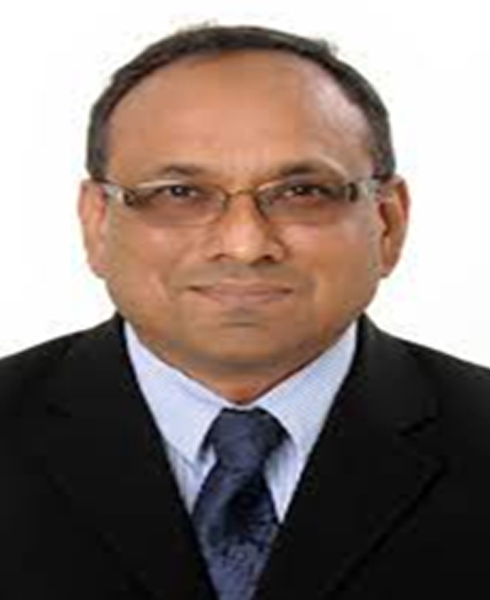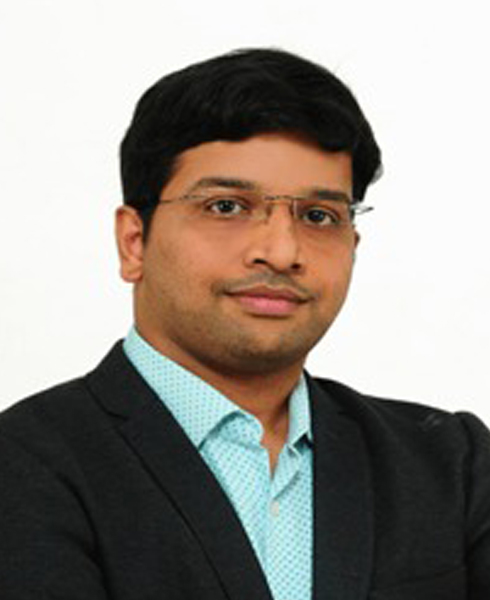Neurosurgery
Dr Varadarajulu
Neurology
Area of Special Interest
Geriatric Neurology ,Epilepsy,Stroke,Migraine, Parkinson's Disease ,Dementia and neuromuscular disorders.
Dr Srinivasa Reddy P
Neurology
Area of Special Interest
Trauma, Brain tumors, Spine surgeries, Minimal invasive spine surgeries, Ability to perform percutaneous procedures
Neurology deals with the diagnosis, treatment, and medicines related to disorders of the nervous system that also involving the central and peripheral nervous system. The physician who diagnoses neurological disorders is called Neurologist.
Neurological Disorders and Symptoms
Neurological disorders involve brain, central, and autonomic nervous system. Some neurological disorders include:
- Epilepsy: involves the brain and can make a sudden collapse to a person. This includes high blood sugar, low blood sugar, high fever, brain concussion. this may happen due to an imbalance of nervous- signaling chemicals called neurotransmitters.
- Alzheimer’s disease: a neurodegenerative disease that may cause while the nerve cells in the brain die. It causes impaired memory, confusion, restlessness, personality disorders, emotional apathy.
- Parkinson’s disease: when a brain cell in the brain called substantia nigra die-off causes Parkinson’s disease. There is no reason behind the disease. Symptoms like resting tremor, bradykinesia, rigidity, poor balance, constipation, mood disorder.
- Meningitis: it causes due to viral infection, and patients may suffer from inflammation of the brain and spinal cord membranes. Symptoms include fever, headache, nausea, stiff neck, confusion, drowsiness, seizures.
- Septicemia: septicemia or sepsis causes due to blood poisoning by bacteria. It is a medical emergency and needs urgent medical treatment. Symptoms include lungs infections, urinary tract infections, skin infections
- Muscular dystrophy: it involves a deformity of joints, muscular weakening. Duchenne muscular dystrophy and Becker muscular dystrophy are common in children. its symptoms include Clumsiness, leg pain, a problem in jumping
- Brain tumor: when a mass of abnormal tissues grows in the brain that considers a brain tumor. The most common brain tumors are meningioma and glioma. Symptoms include ear fullness, noise in the ear.
Neurological disorders in children
Nervous system disorders in children may include
- Lack of growth in head size.
- Increasing head size
- Delaying in the milestone development
- Muscle rigidity
- Tremors
- Changes in activities
The nervous system is at risks and can be damaged by
- Trauma
- Degeneration
- Infections
- Tumors
- Metabolic problems
Effects of neurological disorders
Neurological disorders may cause serious consequences. Delaying in treatment can lead to severe conditions and generates a risk factor. Proper medical guidelines and assistance of the physician are a must needed. Diseases like Parkinson’s disease, sclerosis need medical help.
When a patient seeks medical help?
If any of the following complaints arise, a patient needs medical help
- Headache
- Blurry vision
- Fatigue
- Weakness
- Tremors
- Behavioral changes
Neurological surgeries
Neurological surgeries involve treatment, diagnosis, and surgical treatment to rehabilitate the disorders include brain, spinal cord. Types of surgeries include
- Brain and spinal cord tumors
- Complex spine surgery
- Gamma knife
- Deep brain stimulation
- Disc disease
- Trigeminal neuralgia
- Pain management
- Cerebral vascular brain disorders
- Spinal malformations
Neuro-spinal specialists perform surgeries to treat conditions related to brain, spinal cord, peripheral nerves. Surgery may help in remove the abnormalities in the brain, spine, ligaments neuro- spinal surgeries involve specific conditions include
- Fractures
- Degenerative disc disease
- Neck pain
- Infection
- Lower back pain
- Herniated pain
- Spine trauma care
- Scoliosis
Minimally invasive procedures of neurosurgeries include
- Robotic-assisted spine surgery
- Endoscopic brain surgery
- Deep brain stimulation(DBS)
- Stereotactic radiosurgery
Neurointerventional procedures include:
- Stroke neuro interventions
- Aneurysm treatment
- Angioplasty and Stenting
- Tumors
- Embolization for brain and spinal malformations
- Endovascular treatments for nosebleed
Postoperative complications
- Delirium: It is the most common postoperative complication. This complication associates with morbidity and mortality. In most of the cases, patients remain undiagnosed as it appears normal or slightly lethargic.
- Stroke: Postoperative stroke occurs after or during surgery. cardiac arrest associates with a major risk for postoperative stroke.
- Spinal cord Ischaemia: SCI is associated with the surgical process of thoracoabdominal aneurysms. The mortality rate is high in patients.
- Postoperative visual loss: PVL occurs during elective surgeries like ischaemic optical neuropathy, cortical blindness. It involves embolic phenomena. The risk factors are associated with anterior ION include weight gain, anemia, and cardiopulmonary bypass.
At Cura Hospital, we have a highly talented team of enthusiastic doctors. We serve the best facility for our patients. We believe in healing with care. We care for you every movement.

